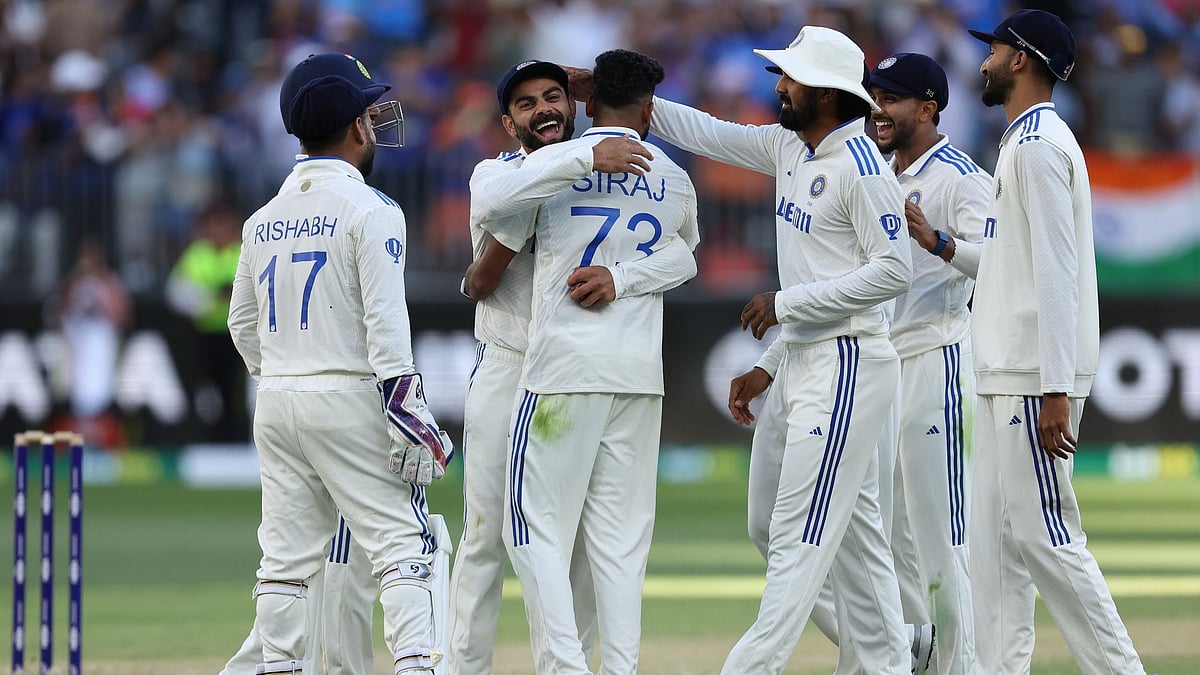Qatar paid more than USD 10 million to a company staffed by former CIA operatives in an attempt to silence criticism from the head of German football against the wealthy Arab nation's hosting of the 2022 World Cup, an investigation by The Associated Press has found.
The multi-year covert influence operation, codenamed "Project Riverbed," targeted Theo Zwanziger, a former FIFA executive committee member and president of the German football federation who was an outspoken critic of the 2010 decision to award the planet's most popular sports tournament to Qatar, according to internal company records reviewed by the AP.
"It's a very, very strange feeling when you're involved in sport and committed to the values of sport, to be followed and influenced," Zwanziger told the AP in an interview last week.
The Qatar World Cup, scheduled to start in November, has long been dogged by allegations of corruption and wrongdoing. U.S. prosecutors said in 2020 that bribes were paid to FIFA executive committee members to gain their votes. Qatar has denied any wrongdoing.
Documents reviewed by AP provide new details about Qatar's efforts to win and hold onto the tournament, specifically the country's work with former CIA officer Kevin Chalker and his company, Global Risk Advisors. The documents build on AP's previous reporting about Chalker's work for Qatar.
Qatari officials did not respond to requests for comment.
Chalker acknowledged in a statement that GRA did work on a Project Riverbed, but said it was only "a media monitoring project staffed by interns and supervised by one full-time employee, who were responsible for reading and summarizing news articles."
"The AP's reporting for this article is based on false information from unidentified sources," Chalker's statement said.
Chalker's spokesman David Wells said he was not at liberty to say who the client was for Project Riverbed or provide other details, like how long it ran or the names of the employees who worked on it. Chalker's attorney, Brian Ascher, said Zwanziger was never the subject of a covert influence campaign by GRA.
The records reviewed by AP indicate otherwise.
"The primary objective of Project Riverbed was to neutralize the effectiveness of Theo Zwanziger's criticism of the 2022 Qatar World Cup and his attempts to compel FIFA to take the World Cup from Qatar," a GRA document reviewed by the AP said.
The AP reviewed hundreds of pages of documents from Chalker's companies, including a final report, memos and budget documents. Multiple sources with authorized access provided the documents to the AP. The sources said they were troubled by Chalker's work for Qatar and requested anonymity because they feared retaliation.
The AP took several steps to verify the documents' authenticity. That includes confirming details of various documents with different sources, such as former Chalker associates, and examining electronic documents' metadata, or digital history, where available, to confirm who made the documents and when.
Elliott Broidy, a one-time fundraiser for former US President Donald Trump, is suing Chalker and has accused him of mounting a widespread hacking and spying campaign at Qatar's direction.
Broidy has alleged in court filings that Chalker and GRA targeted Zwanziger with a covert influence campaign like the one described in the documents reviewed by the AP. Chalker's legal team has argued the lawsuit is meritless, and a judge dismissed Broidy's overall complaint, while leaving the door open for the case to continue.
Project Riverbed ran from January 2012 to mid-2014 and "successfully employed complex traditional intelligence tradecraft to target individuals within Zwanziger's circle of influence and modify sentiment associated with the Qatar World Cup," according to one document summarizing the Riverbed effort reviewed by the AP.
This amounted to creating an "influencer network" made up of people close to the German football official who would pass on views to him that were favorable toward Qatar hosting the World Cup.
To do this, GRA would send a "source" or "throwaway" to speak to the influencers in a way they would not suspect was a concerted messaging campaign, according to internal documents.
"The interaction always portrayed a consistent message: the 2022 World Cup in Qatar was good for business, brought together the Middle East and the West, and was good for the world," the report said. GRA said in a report that there were "thousands" of these interactions with Zwanziger's network.
GRA's records said Project Riverbed was initially approved for a $27 million budget and that Qatar had been late with payments and did not provide all of the funds.
Despite the fiscal constraints, GRA said Riverbed was a success.
"Zwanziger now believes Qatar should retain the 2022 World Cup so that the international community will become more aware of migrant workers' conditions in Qatar and push for extensive reform of Qatari human and workers' rights," GRA says in its executive summary.
The company was wrong.
In a radio interview with a German station in June 2015 - a year after the supposed completion of "Project Riverbed" - Zwanziger repeated his claim that Qatar is "a cancer of world football."
It prompted the Qatar Football Association to file a civil lawsuit against Zwanziger in a bid to stop him from making such comments in future. The case was dismissed by Düsseldorf's regional court, which ruled Zwanziger was within his right to free speech.
Zwanziger had more legal difficulties later when he and members of the German 2006 World Cup organizing committee faced corruption probes in Frankfurt and Switzerland. Zwanziger denied any wrongdoing and in August 2019 accused Swiss prosecutors of deliberately misinterpreting evidence. The Swiss trial ended in April 2020 without a judgment.
Zwanziger said it's vindicating to now learn that he was the target of a failed manipulation campaign.










